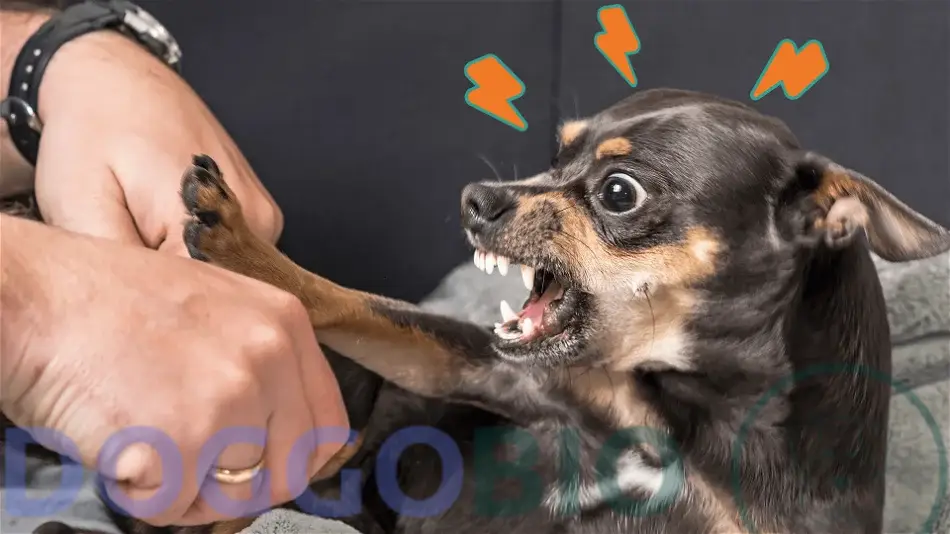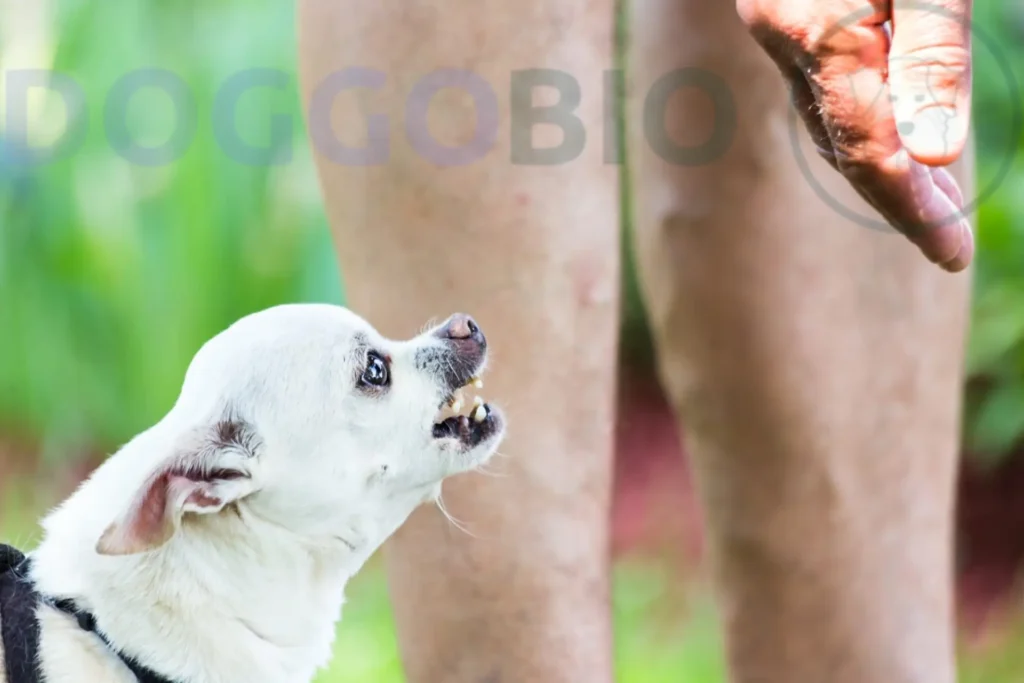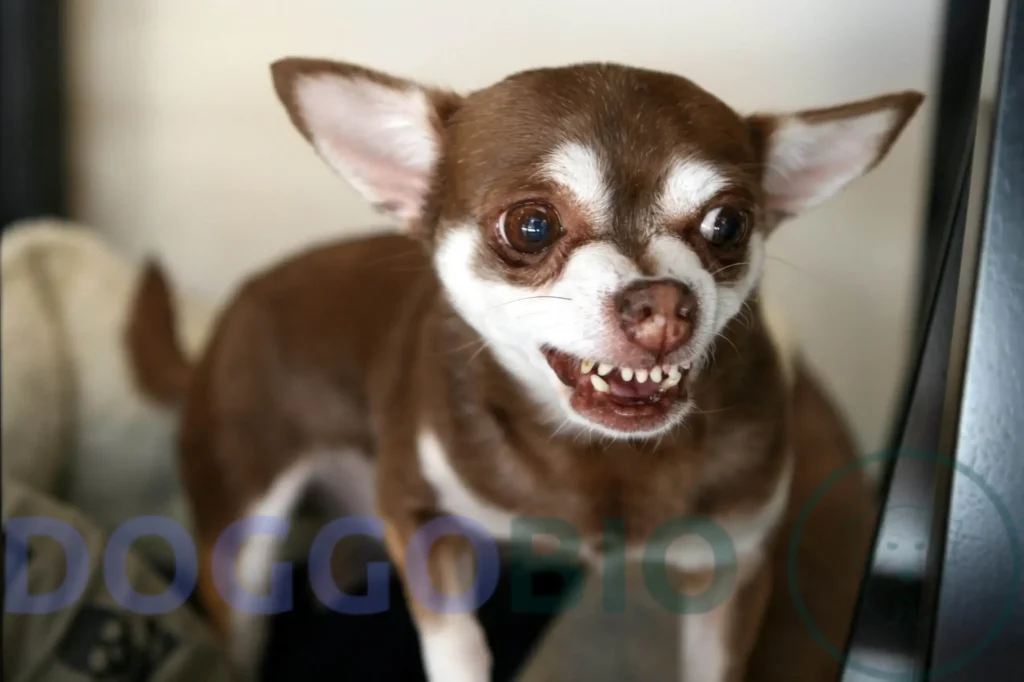Chihuahuas, one of the most miniature dog breeds, often carry a reputation for being feisty and sometimes aggressive.
Many have pondered the common question, “Why are Chihuahuas so mean?” The truth is, Chihuahuas are not inherently mean. Their perceived meanness is often a result of their strong protective instincts and close bond with their owners. Being small, they can be more prone to anxiety and may react defensively in situations where they feel threatened. Additionally, their behavior is significantly influenced by factors such as breeding, upbringing, and dog training.
Understanding and addressing these aspects can help mitigate aggressive tendencies, revealing the affectionate and loyal nature of these petite companions.
Are Chihuahuas Mean?
No, Chihuahuas are not inherently mean. While they can be feisty and sometimes aggressive, this behavior often stems from their loyalty to their owners and the wariness of unfamiliar situations.
With proper training and socialization, they can be as affectionate and gentle as any other breed. It’s crucial to provide them with a secure and loving environment to understand and meet their needs.
Why are chihuahuas so mean?
Understanding the root causes of a Chihuahua’s aggression is the first step in addressing and managing it. Here are some common reasons:

1.Fear and Anxiety
Being the world’s smallest dog breed, Chihuahuas are often more vulnerable. This vulnerability can lead to fear-based aggression, especially when confronted with larger animals or loud noises. Their small stature means they might need to defend themselves more assertively than larger breeds.
2.Lack of Training and Socialization
Early socialization is crucial for all dog breeds. Chihuahuas, in particular, benefit from being introduced to various environments, people, and animals during their formative months. This exposure helps reduce fear and uncertainty in unfamiliar situations.
3.No obedience training
Setting boundaries and teaching basic commands are essential. Without this foundation, Chihuahuas might develop dominant behaviors, often mistaking themselves as the “alpha” of the household.
4.Exercise is not enough
While they’re small, Chihuahuas are energetic. Regular physical and mental stimulation prevents them from becoming restless and potentially aggressive.
5.Health Issues
Undiagnosed health problems can be a significant source of discomfort. A Chihuahua in pain might become snappy or irritable, displaying aggressive behaviors as a cry for help.
6.Genetics
Some Chihuahuas may be genetically predisposed to aggressive behavior.
7.Resource guarding
They can be possessive of their food or toys.
8.Past Abuse
Chihuahuas that have experienced abuse or trauma can exhibit aggressive behavior due to PTSD.
9.Unfamiliarity with Strangers
Chihuahuas are particularly attached to their owners and can be wary of new faces. They may bark, snap, or show other signs of aggression towards strangers until they become familiar with them.
10.Dominant Personalities
Some Chihuahuas have dominant attitudes and can try to assert control if not trained properly from a young age.
11.Discomfort with New Environments
Chihuahuas prefer stability and can become anxious and aggressive when relocated frequently.
12.Hormonal Changes
Female Chihuahuas can become more aggressive during their heat cycle.
Preventing And Managing Aggressive Behavior
Addressing aggressive behavior proactively can lead to a more harmonious relationship with your Chihuahua:

1. Early socialization
Exposing Chihuahuas to various stimuli during their formative months can help them become well-adjusted adults.
2. Consistent obedience training
Regular training sessions reinforce desired behaviors and establish boundaries.
3. Providing a safe and secure environment
A stable environment where Chihuahuas feel safe can significantly reduce anxiety-induced aggression.
4.Establishing clear leadership roles
Demonstrating leadership ensures that Chihuahuas understand their place in the household hierarchy.
5.Using calming aids like treats or sprays
Products like calming sprays or treats can help soothe an anxious or agitated Chihuahua.
6.Positive reinforcement
Rewarding good behavior consistently is more effective than punishing undesirable behavior.
7.Be patient and understanding
Recognizing that aggressive behavior often stems from fear or past traumas and addressing it with empathy can lead to positive outcomes.
Signs Of An Aggressive Chihuahua
Recognizing aggression early is crucial for the dog’s safety and those around it. Chihuahuas might display several signs:

1.Intense staring or side-eye glances
This behavior can be a precursor to more aggressive actions. It indicates the dog is uncomfortable or sees something as a potential threat.
2.Snarling, teeth baring, or grimacing
These are unmistakable signs of a dog that’s feeling threatened or cornered. Immediate intervention is required to prevent escalation.
3.Growling or loud barking
Chihuahuas are naturally vocal, but there’s a distinct difference between regular barking and aggressive growling.
4.Displaying flattened ears and a lowered stance
These postures indicate a dog that’s feeling defensive or fearful.
Why Are Chihuahuas So Mean To Other Dogs?
Despite their size, Chihuahuas can sometimes display a Napoleon complex when interacting with other dogs.
This behavior stems from their instinct to defend themselves and their territory. They might perceive other dogs, especially larger ones, as threats. This perception can lead to aggressive posturing, growling, or even snapping.
Owners must closely monitor their Chihuahua’s interactions with other dogs and intervene if necessary.
How Do I Stop My Chihuahua From Being Aggressive To Other Dogs?
Managing a Chihuahua’s aggression towards other dogs requires a multifaceted approach:

1.Proper introductions
Slow, controlled introductions in neutral territories can help reduce initial aggression.
2.Training and enrolling in puppy obedience classes
Taking part in obedience classes can provide structured environments where Chihuahuas can learn appropriate behaviors and socialize with other dogs. Consistent training reinforces positive behaviors and curbs aggressive tendencies.
5.Visiting other dogs
Visiting dog parks and scheduled playdates can offer valuable socialization opportunities and build positive associations with other dogs. Regular interactions in supervised settings can help Chihuahuas become more accustomed to other dogs.
Can You Have A Truly Dangerous Chihuahua?
While Chihuahuas can display aggressive tendencies, labeling one as “truly dangerous” requires careful consideration.
Most aggressive behaviors in Chihuahuas stem from fear, protectiveness, or past traumas. These behaviors can be managed with proper training, understanding, and care.
However, it’s essential to treat all dogs, regardless of size, respectfully and cautiously, especially if they display signs of discomfort or aggression.
Frequently Ask Question
What Causes Some White Chihuahuas To Be More Aggressive Than Others?
The aggression levels in white Chihuahuas can vary due to several factors such as genetics, early socialization, past traumas, and underlying health conditions. Recognizing and addressing these individual factors is essential for effectively managing aggressive behaviors in these dogs.
How To Train My Teacup Chihuahua Dog Not To Be Aggressive?
Training a Teacup Chihuahua not to be aggressive involves consistent positive reinforcement, establishing clear boundaries, early socialization, and sometimes seeking the help of professional dog trainers or behaviorists.
Why Are Blue Chihuahuas Aggressive To Their Owners?
Although all Chihuahuas, included Blue Chihuahua typically exhibit loyalty and affection towards their owners, there are instances where they may demonstrate aggression. This behavior can stem from reasons such as fear, pain, or confusion. It’s essential to approach these situations with empathy and to consider seeking professional guidance if necessary.
Why Do Chihuahuas Shake So Much?
Chihuahuas are known for their trembling, which can be attributed to various reasons. They might shake due to excitement, cold, fear, or certain medical conditions. If your Chihuahua shaking is frequent and unexplained, consulting a veterinarian is always a good idea.
Are Long-haired Chihuahuas Good Guard Dogs?
No, Long-haired Chihuahuas are not good guard dogs in the traditional sense due to their size. However, they are alert and bark to alert their owners of any unusual activity. Their keen sense of hearing and the natural wariness of strangers make them excellent watchdogs.
However, training them to differentiate between regular and suspicious activities is essential to prevent excessive barking.
What is the measured Chihuahua bite force?
The measured bite force of a Chihuahua remains a topic of debate. While some online sources claim it to be around 3,900 PSI, this figure is highly disputed. Considering the small size of their head and jaws, it’s more likely that their bite force is closer to 100 PSI, according to realistic estimates and comparisons with other dog breeds.
Conclusion
In conclusion, the question “Why Are Chihuahuas So Mean?” uncovers a multifaceted answer. It’s clear that Chihuahuas are not inherently mean; rather, their behavior is a complex interplay of genetics, environment, and upbringing. Their size, protective instincts, and the way they are socialized and trained play pivotal roles in shaping their demeanor. Understanding these factors is key to nurturing a well-behaved and affectionate Chihuahua.
By providing proper training, socialization, and a loving environment, Chihuahua owners can help their pets exhibit the loyal, loving characteristics that truly define this breed, debunking the myth of their ‘meanness’ and appreciating the unique personality of each individual dog.

Pingback: Long Haired Chihuahua: Secrets of Grooming And Care! 2024
Pingback: Teacup Chihuahua: Heartwarming Little Miracles of Love 2024
Pingback: Why Do Chihuahuas Shake? Heart-Tugging Secrets 2024
Pingback: Chihuahua Bite Force: A Jaw-Dropping Revelation! 2024
Pingback: White Chihuahua: Discover Elegance In Petite Package 2024
Pingback: Do Chihuahuas Bark a Lot? The Astonishing Truth 2024